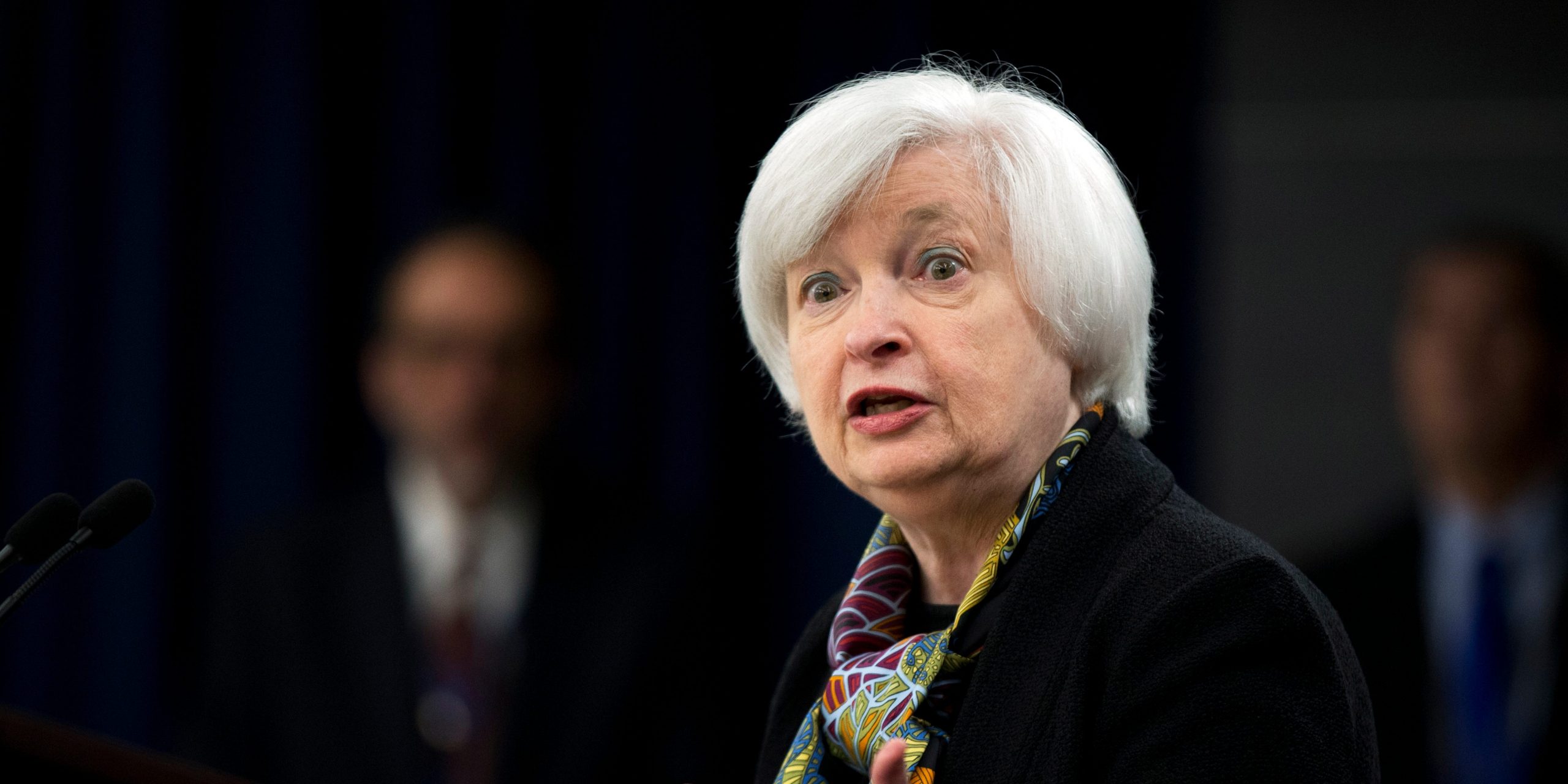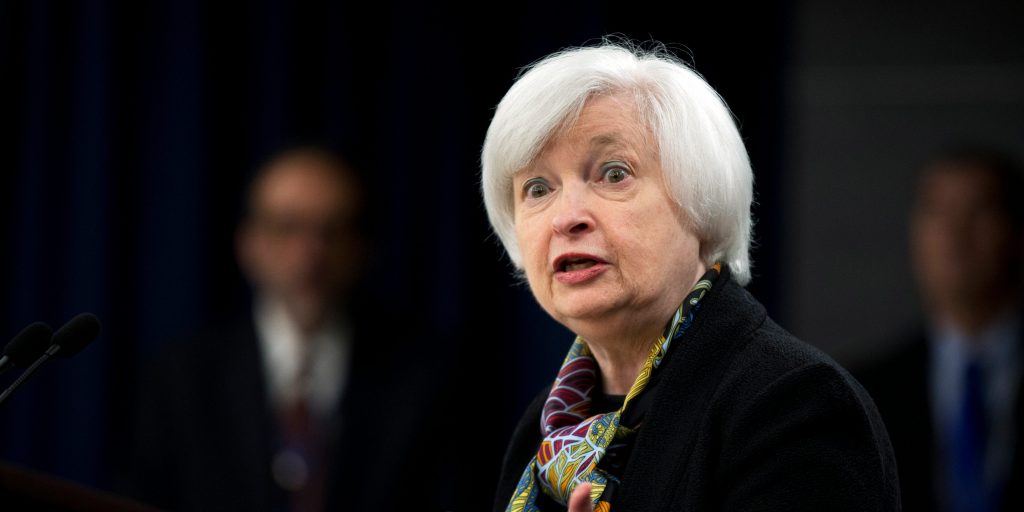
Manuel Balce Ceneta/AP
- There's nothing "more harmful" to the US dollar than failing to lift the debt ceiling, Treasury Sec. Yellen said Tuesday.
- A government default would erode trust in the dollar, make borrowing more expensive in the US, and could also reshape international finance.
- Congress is at a stalemate over raising the limit, and lawmakers have just 20 days to do so.
- See more stories on Insider's business page.
The US dollar has served as the world's reserve currency for decades. Banks and governments around the globe trust in its value, and that trust is integral to the US's economic strength.
If Congress fails to raise the debt ceiling over the next few weeks, the damage to the dollar would be ruinous, Treasury Secretary Janet Yellen warned Tuesday.
Lawmakers are barreling toward an October 18 deadline to either suspend or raise the limit on how much the government can borrow. If that sounds familiar, it's because Congress has already adjusted the ceiling 78 times since 1960.
Intense brinkmanship between Democrats and the GOP could end that streak and force the government to default on its massive debt pile. Such an outcome would spark "a financial crisis and economic recession," and permanently mar the power of the dollar, Yellen said in testimony to the Senate Banking Committee.
"I can't think of anything more harmful to the role of the dollar than failing to raise the debt ceiling," the Treasury Secretary said.
The fallout would also slam everyday Americans. If government borrowing slams into the debt ceiling, investors will demand greater returns from US Treasurys. That will drive interest rates sharply higher and raise the cost of borrowing for ordinary Americans. Interest payments on mortgages, car loans, and credit cards would skyrocket, Yellen said.
Progress toward a solution, however, is scant. Senate Republicans led by Minority Leader Mitch McConnell have said Democrats will have to raise the ceiling on their own, arguing such action allows them to spend irresponsible amounts of government cash. Democrats maintain raising the limit only covers past spending, and that Republicans' spending under President Donald Trump added trillions in government debt.
It's far from the first time Yellen has sounded the alarm on debt-ceiling fallout. Hours ahead of the Senate hearing, Yellen sent lawmakers a letter that set October 18 as the deadline for a debt crisis. The Treasury's "extraordinary measures" to pay the government's debts would run out by that day, she said. The Treasury Secretary previously warned the ceiling would be reached by mid-October.
Yellen also penned a September 20 column in The Wall Street Journal that shed more light on the dangers of a government default. Failing to raise the ceiling would result in "economic catastrophe" with harmful effects throughout the US economy, she said.
"We could see indefinite delays in critical payments. Nearly 50 million seniors could stop receiving Social Security checks for a time," she said. "Troops could go unpaid. Millions of families who rely on the monthly child tax credit could see delays."
Yellen hasn't spelled out the wider effects on international finance, but loss of faith in the dollar as the reserve currency could reshape the global financial system.
Democrats still have some options to lift the limit. A reconciliation measure - which requires support from all 50 Senate Democrats - could issue a temporary fix and buy precious time for Congress to reach an agreement.
For now, the party is still hopeful it can call Republicans' bluff. The Senate is poised to vote on raising the ceiling Tuesday afternoon. If Republicans hold their ground, Democrats have just two options to avoid a calamitous default: raise the ceiling, or get rid of it entirely.

